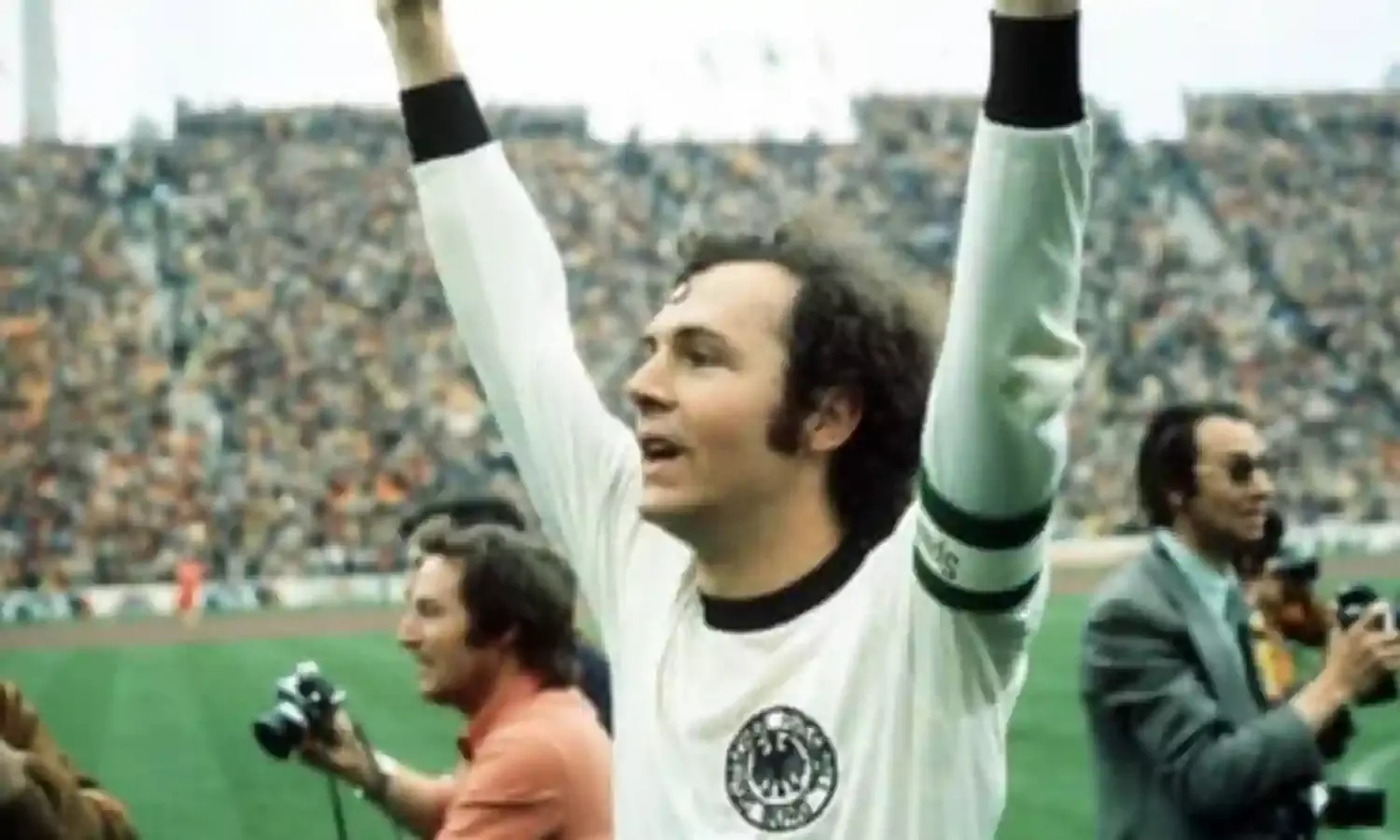Franz Beckenbauer – A True Legend
He had come to personify Germany's post-war sporting success

One by one the giants are leaving us. Maradona and Pele, Johan Cruyff and Bobby Charlton. And now in a matter of three days first Mario Zagallo and then Franz Beckenbauer have passed. World football, once replete with legends of the post-war era, now just has its collection of new-age idols.
Beckenbauer was perhaps the last of the game’s immortals. With his passing, football’s era of original heroes has finally ended. Zagallo was the first footballer to have won the World Cup both as player (1958 and 1962) and manager (1970), Beckenbauer was the second with titles as player in 1974 and as manager in 1990. But the German went one better in that he was captain when the country won the Cup half a century ago.
An iconic German player and later a coach with a knack for leading his teams to greatness, Beckenbauer was known as Der Kaiser (The Emperor) , a title that fitted both his stylish and assured playing style and his natural leadership.
“He was so elegant, he just oozed class and quality’’ Karl Heinz Rummenigge, a teammate and later fellow administrator at Bayern Munich, said. FIFA chief Gianni Infantino hailed him as “a true legend”.
Becknbauer was Germany’s first truly global sports star. He remained part of the country’s social fabric in a hugely successful career on and off the pitch spanning over 50 years.
He helped establish Bayern Munich as Germany’s strongest club and one of Europe’s finest. Beckenbaur was a member of the club team that won three consecutive European cups between 1974 and 1976 among other titles.
He became the team coach and club president after his playing days, establishing the German champions as one of the most successful and valuable brands in European football.
At international level he played a key role as Germany became a football powerhouse. Yet, his final triumph leading Germany’s successful organisation of the 2006 World Cup ultimately cast a shadow over his legacy when he was implicated in possible corruption in securing the hosting rights. Denying the charges he headed the organising committee in what was a successful competition.
Beckenbauer’s first taste of fame came when he played in the midfield in the 1966 World Cup, when West Germany lost in the final to hosts England. He had the toughest job in being told to mark Bobby Charlton. But the youngster then only 20 did a commendable job and it was clear that he was marked for greatness.
As teams switched from three players in the defence to four he dropped into central defence but revolutionised the position. He developed the role of ‘libero’ sauntering forward to support the attack. With a relaxed swing of either boot he could shoot from long range with power and accuracy.
Beckenbauer was a classy and dominant presence on the pitch for West Germany and Bayern Munich in the 60s and 70s. He had an admirable calmness on the ball, and effortless distribution that marked his midfield performances to virtually invent the central defensive sweeper role where he found most success.
He collected 103 caps for West Germany winning the 1972 European championship, and then the World Cup on home soil two years later. Basking in his genius Bayern Munich emerged as the best club side in the world during the mid 70s while Beckenbaur himself was twice named European footballer of the year.
As national team manager his West German team lost in the 1986 World Cup final to Argentina but triumphed against the same opponents four years later in Italy as a combined German team.
Beckenbauer helped modernise soccer and came to personify Germany's post-war sporting success. He won every major honour in his glittering playing career and continued his extraordinary record of success after switching to the manager's bench.
He was West Germany's footballer of the year a record four times and twice European footballer of the year. He was widely regarded as one of the greatest soccer players of all time, and by many as the best European.
Always calm under pressure and a skilful marshal of his defence, Beckenbauer could read the game so astutely he knew exactly the right moment to surge upfield. The unhurried sweeper never seemed to break sweat as he sprayed perfect long raking passes to his strikers.
Born in Munich in 1945, Beckenbauer joined Bayern's youth teams in 1959. He progressed to the first team and, with Beckenbauer orchestrating from midfield, Bayern rocketed to international prominence from the obscurity of West German regional league soccer to establish the most powerful brand in German football.
Shortly after his 20th birthday Beckenbauer was capped for the first time in a World Cup qualifier against Sweden and became a fixture in the national team for more than a decade.
Among the several Beckenbauer images that will live in memory one possibly will stand out. In the 1970 World Cup semi final against Italy he dived into the Italian box in a bid to head the ball but landed heavily on his right arm and dislocated it.
Coach Helmut Schoen had already made his two permitted changes so Beckenbauer carried on playing throughout extra time with his arm in a sling. Italy won a pulsating encounter that lasted 120 minutes 4-3 but it was Beckenbauer’s bravery that won him a legion of admirers.



